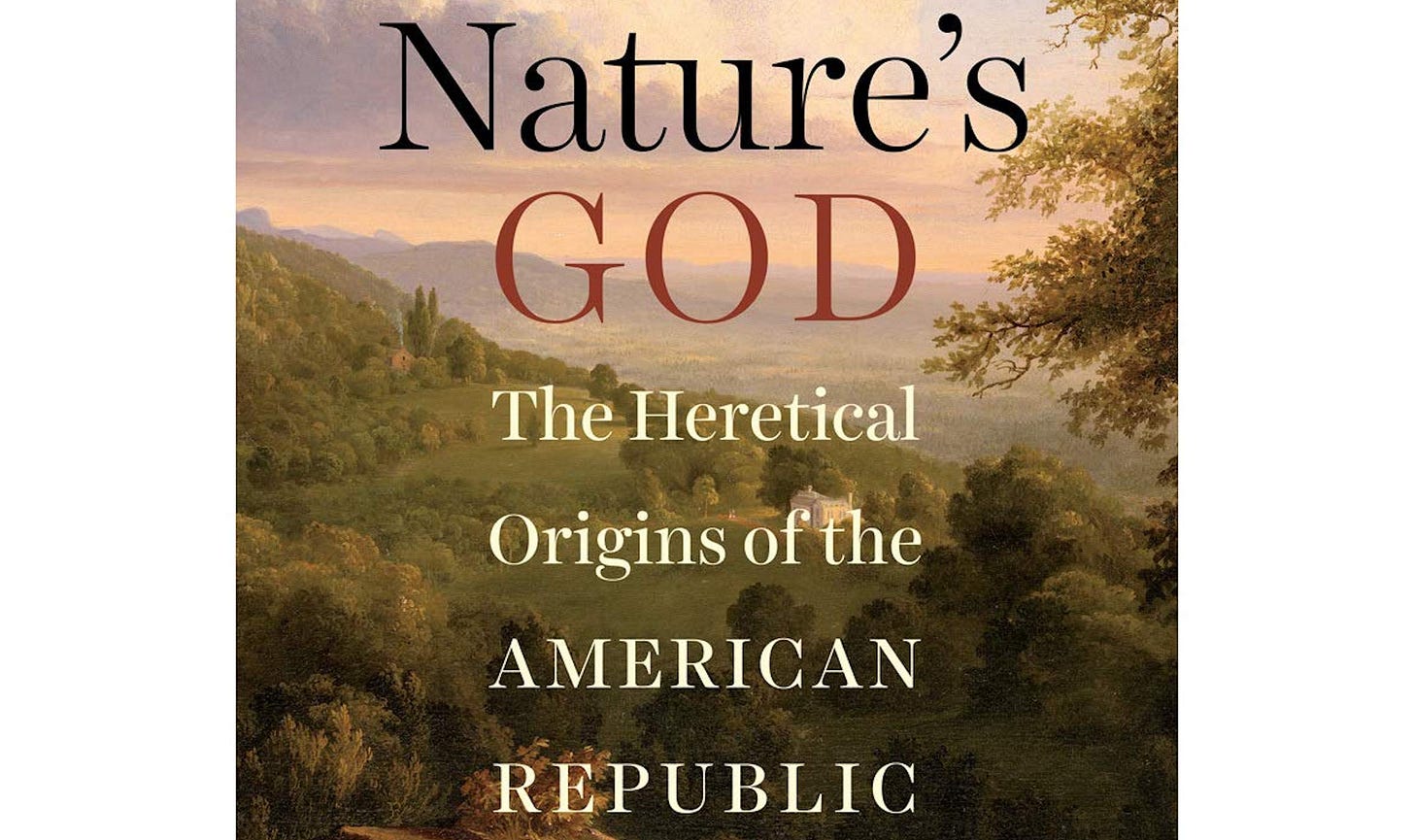Nature’s God: The Heretical Origins of the American Republic by Matthew Stewart
By Brian Tebbitt
Nature’s God: The Heretical Origins of the American Republic
by Matthew Stewart
New York: W. W. Norton & Company, 2014.
534 pp. $17.95 (paperback).
Well-read intellectuals, Greek philosophy, and atheism are what made America great. So says Matthew Stewart.
In Nature’s God: The Heretical Origins of the American Republic, Stewart dispels the entrenched narrati…
Keep reading with a 7-day free trial
Subscribe to The Objective Standard to keep reading this post and get 7 days of free access to the full post archives.


